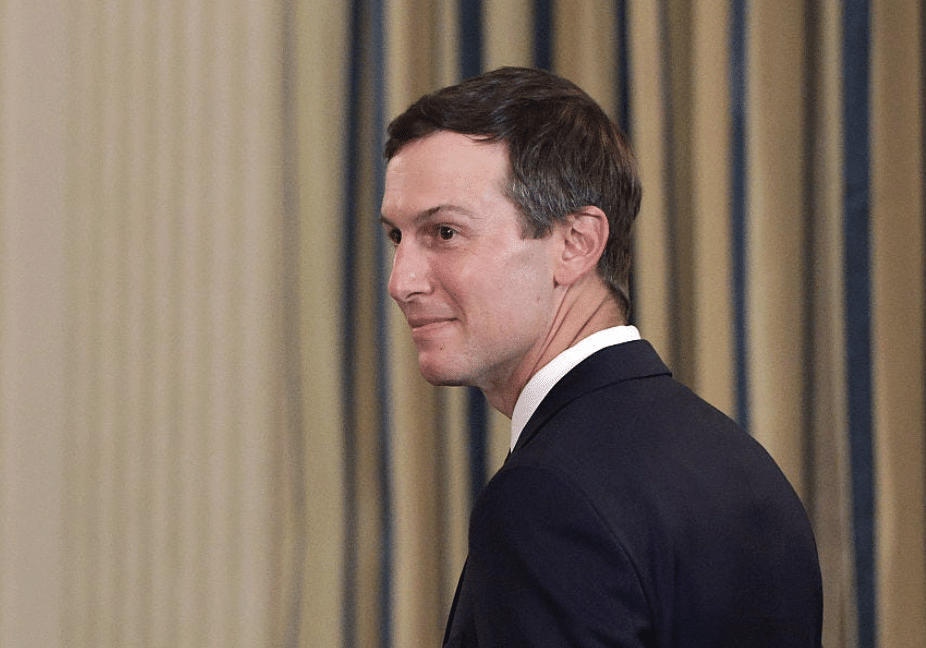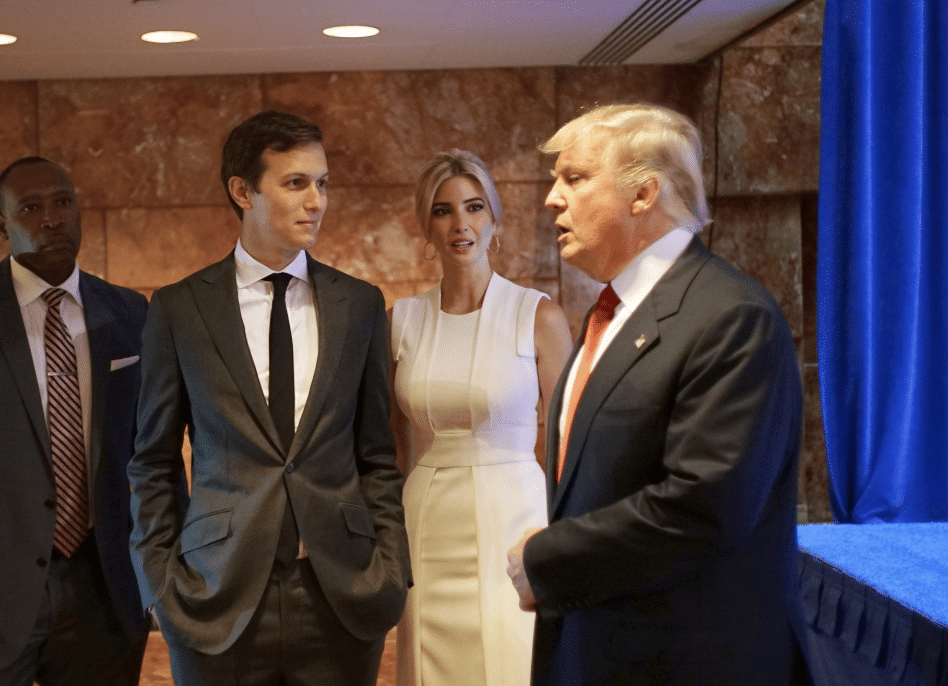Electronic Arts, one of the biggest names in video games, is about to go private in a massive buyout. Jared Kushner’s investment firm and Saudi Arabia’s sovereign wealth fund are leading a $55 billion acquisition of the company behind Madden NFL, FIFA, and Battlefield.
This is the largest buyout of a public company ever—pretty wild, honestly.
Kushner’s Affinity Partners, the Saudi Public Investment Fund, and Silver Lake are teaming up for the deal. EA stockholders get $210 per share in cash, about 25% higher than where the stock traded before rumors started swirling.

International investors are betting big on gaming’s future with this move. The Saudi fund, in particular, has been pouring money into gaming as part of its push to move beyond oil, and EA’s sports games fit right in with their sports ambitions.
Key Takeaways
- Electronic Arts is getting acquired for $55 billion by a group led by Jared Kushner’s firm and Saudi Arabia’s sovereign wealth fund.
- The deal pays shareholders $210 per share and marks the biggest public company buyout to date.
- Regulators still need to approve the acquisition, which should close in the second quarter of 2026.
Overview of the $52 Billion Electronic Arts Buyout
Electronic Arts is being acquired for $52.5 billion in a deal that will turn the public gaming powerhouse into a private company. A consortium of investors is behind the move, making this one of the largest leveraged buyouts ever.
Key Details of the Deal
The buyout values EA at around $50–52.5 billion, depending on the source. Kushner’s Affinity Partners, the Saudi fund, and Silver Lake Partners are all part of the group making this happen.

Key Players in the Deal:
- Affinity Partners – Jared Kushner’s private equity shop
- Saudi Public Investment Fund – The kingdom’s giant sovereign wealth fund
- Silver Lake Partners – A private equity firm focused on tech
The deal uses a classic leveraged buyout approach. The private equity firms are borrowing heavily to buy EA, planning to make changes outside the public market’s constant scrutiny.
EA’s stock price jumped about 15% when word of the deal first leaked. The company’s value hit roughly $48 billion before the official announcement.
This buyout smashes the previous record for private equity deals. The old record was the 2007 TXU Energy buyout, which went for about $32 billion.
History of EA as a Public Company
Electronic Arts has been a public company since its IPO way back in 1989. It joined the NASDAQ during the early days of gaming’s rise and has stayed there for more than thirty years.
EA made its name with franchises like Madden NFL, FIFA (now EA Sports FC), The Sims, and Battlefield. These games raked in billions and made EA a true giant in the industry.
EA’s stock has gone up and down depending on how its games performed and industry shifts. Lately, they’ve faced some rough patches with weak sales and the rise of mobile and free-to-play games.
Being a public company means EA has always had to answer to shareholders every quarter. That kind of pressure can make it tough to think long-term or take big risks on new tech.
Shareholder Approval Process
EA shareholders need to sign off on the buyout through a formal vote. The board will review the offer and let shareholders know if they think it’s a good deal.
Shareholders will weigh the premium over the current stock price. The group’s offer is a hefty bump up from where EA was trading before the news broke.
Standard approval steps include:
- Majority shareholder vote
- Regulatory clearance from antitrust officials
- Board recommendation
- Finishing due diligence
The approval process usually takes a few months. Shareholders will get all the details and projections before they vote.
If they approve, EA will stop trading on the stock market and go private under the new owners.
The Investor Consortium: Kushner, Silver Lake, and PIF
The Electronic Arts buyout brings together Jared Kushner’s Affinity Partners, Saudi Arabia’s PIF, and Silver Lake Partners. Each one brings something different to the table—cash, connections, and a track record with big tech deals.
Role of Jared Kushner and Affinity Partners
Jared Kushner started Affinity Partners in 2021 after his stint as a senior advisor in the White House. The firm is based in Miami and looks at deals in the U.S. and Israel.
Affinity Partners is one of the main backers of the $52.5 billion EA deal. For a firm that’s only a few years old, that’s a huge move.
The company chases tech and growth investments. Kushner’s rolodex and business chops give Affinity some unique angles.
Affinity has pulled in a lot of capital since it launched. Their role in the EA buyout shows they can play in the big leagues when it comes to tech acquisitions.
Saudi Arabia’s Public Investment Fund (PIF) Involvement
The Public Investment Fund is Saudi Arabia’s sovereign wealth fund, managing about $925 billion. That’s enormous—PIF is one of the world’s largest funds, period.
Saudi gaming investments are all part of Vision 2030, the country’s plan to diversify away from oil. They’re betting on entertainment, tech, and sports to drive the next chapter.
PIF’s Gaming Moves:
- $3.3 million stake in Activision Blizzard (2021)
- Founded Savvy Games Group for development and publishing
- Invested in Nintendo
- Sponsored the 2025 Esports World Cup
Buying into EA is PIF’s biggest gaming bet so far. It cements Saudi Arabia’s push into global entertainment.
Silver Lake Partners’ Previous Technology Deals
Silver Lake Partners adds deep tech investment experience to the group. Glenn Hutchins and Roger McNamee started the firm in Menlo Park back in 1999.
They’ve pulled off some huge tech deals across different industries. Silver Lake’s portfolio includes giants like Dell Technologies, so they know how to handle big transformations.
Some Silver Lake Highlights:
- Dell Technologies – Major player in computers and infrastructure
- Skype – Communications platform
- Oracle – Enterprise software
Lately, Silver Lake even looked at buying TikTok’s U.S. operations. They specialize in taking tech companies private and shaking things up.
Silver Lake’s role in the EA deal brings critical expertise for the transition to private ownership.
Strategic Implications for Electronic Arts
The EA buyout will shake up the company’s leadership, game strategy, and its place in the industry. Andrew Wilson is sticking around as CEO, but with new owners, you can bet there’ll be a shift toward mobile and free-to-play games.
Leadership and Organizational Changes
Andrew Wilson will stay on as chief executive after the deal wraps up. The company is keeping its headquarters in Redwood City, California, and the current leadership isn’t changing—at least for now.
The new owners have their own priorities. The Saudi fund wants to diversify beyond oil, especially in gaming. Silver Lake is all about tech makeovers and efficiency.
Kushner’s Affinity Partners brings political connections and a possible bridge to Middle Eastern markets. That could shape what games get made and where EA tries to grow.
Going private means no more quarterly earnings drama. Wilson and his team can finally focus on long-term plans without Wall Street breathing down their necks.
Potential Impact on EA Game Franchises
EA’s big franchises could see some changes. Madden NFL and EA Sports FC fit perfectly with Saudi Arabia’s sports investments, like LIV Golf and soccer deals.
The Sims might head deeper into mobile and free-to-play territory. It’s a social sim that lines up well with where casual gaming is going.
Battlefield could get more resources for the competitive gaming scene. With Saudi Arabia hosting the Esports World Cup, there’s a clear tie-in.
Expect more live services and streaming features in future games. Netflix-style gaming and better mobile access are big opportunities for the new owners.
Future Growth and Market Position
This buyout sets EA up to chase new gaming trends aggressively. Free-to-play and mobile games will probably get a lot more attention and funding.
Expanding into the Middle East and Asia gets easier with Saudi backing. The kingdom’s influence could open doors for EA in those markets.
As a private company, EA can snap up smaller studios and tech firms without worrying about the stock market’s reaction. That could mean faster growth and more experimentation.
Streaming and cloud gaming are huge targets now. The new owners have the money to build out infrastructure and take some risks.
Transformations in the Gaming Sector
The EA buyout is the biggest leveraged buyout in gaming history, and it’s shaking up how companies grow and compete. Private equity is rewriting the rules, while the old guard scrambles to keep up with new business models and shifting player tastes.
Trends in Gaming Acquisitions and Investments
The gaming sector has seen a wild wave of consolidation these last five years. Microsoft’s $68.7 billion Activision Blizzard buyout really kicked off the era of mega-deals.
Sony poured cash into Epic Games, joining several funding rounds that added up to billions. Scopely also raised a mountain of private money before Savvy Games Group scooped it up for $4.9 billion in 2023.
Key Investment Patterns:
- Private equity firms chasing established publishers
- Sovereign wealth funds jumping into gaming
- Mobile gaming companies getting sky-high valuations
- Esports platforms like ESL and FACEIT drawing in strategic buyers
The Saudi Arabia Public Investment Fund plans to pump $38 billion into gaming through Savvy Games Group. That’s easily one of the boldest sovereign fund moves in the industry.
Venture capital hit record highs in 2021 and 2022 for gaming startups. Investors shifted focus toward mobile, blockchain, and cloud gaming platforms.
Competitive Landscape and Major Rivals
Nintendo still holds its ground as a top console maker, thanks to its exclusive franchises. The Switch hybrid keeps pulling in revenue from first-party games.
Epic Games morphed from a classic developer into a full-blown platform company. Fortnite’s wild success gave Epic the muscle to take on traditional distribution with its own store.
Major Gaming Companies by Market Position:
| Company | Primary Focus | Key Strengths |
|---|---|---|
| Nintendo | Console/Mobile | Exclusive IP, Hardware Innovation |
| Epic Games | Platform/Engine | Unreal Engine, Fortnite Ecosystem |
| Electronic Arts | Sports/AAA Games | FIFA, Madden, Battlefield Franchises |
Console gaming’s feeling the heat from mobile and free-to-play models. Gaming companies have shifted in response to changing player attitudes, with mobile platforms eating up market share.
Now, the fight isn’t just about making games—it’s about who controls the platform, the data, and the live services.
Role of Private Equity in the Gaming Market
Private equity firms bring cash and operational know-how for expansion. Silver Lake, managing $110 billion in assets, has a deep bench in tech and gaming deals.
They zero in on better monetization and efficiency. Data-driven strategies for development and marketing are the norm for these investors.
Private Equity Value Creation Strategies:
- Optimizing live service revenue
- Pushing into mobile and new markets
- Streamlining how games are made
- Building cross-platform ecosystems
The Electronic Arts deal needs $20 billion in debt financing from JPMorgan Chase. This leveraged buyout setup gives investors more bang for their buck and keeps them in the driver’s seat.
Private equity owners can move faster and aren’t as tied up by public market drama. Long-term plays suddenly feel a lot more doable.
Impact on Employees and Operations
Most gaming acquisitions trigger some kind of restructuring or strategy shift. Companies tend to merge overlapping roles and double down on their core teams.
Electronic Arts will stick around in Redwood City with Andrew Wilson still at the helm. So, for now, day-to-day operations probably won’t change much.
Common Post-Acquisition Changes:
- Talent Retention: Top developers get equity incentives
- Resource Allocation: More cash goes to hit franchises
- Technology Integration: Teams share tools and platforms
- Market Expansion: Access to new regions opens up
Private owners usually pay more to keep key people. Without public shareholders breathing down their necks, they can offer better deals.
Live service games need teams that crank out new content all the time. The old project-based cycles just don’t cut it anymore in this market.
Market Reactions and Analyst Perspectives
Electronic Arts stock shot up after the acquisition news broke. Analysts still can’t agree if the premium really reflects EA’s worth, but the industry’s calling it the biggest leveraged buyout ever.
Stock Market Performance Following Announcement
EA shares soared after word of the buyout got out. The stock price definitely showed investors were eager for the premium on offer.
Trading volume went nuts as everyone scrambled to react. Market makers moved fast to adjust for the new expected closing price.
The whole gaming sector got a lift, with investors betting on more big mergers. Other major gaming stocks ticked up, though not nearly as much as EA.
Options trading spiked. Put options lost value, while calls near the buyout price became hot commodities for arbitrage funds.
Analyst Opinions on Valuation
Wall Street can’t seem to agree on whether $55 billion is enough for EA. Some think the premium doesn’t really factor in EA’s growth in mobile and live services.
Investment banks pointed to EA’s strong cash flow and recurring revenue from FIFA and Madden. A few analysts argued the digital pivot should mean a higher valuation.
Others felt the deal price made sense, given the struggles of console gaming and the rise of free-to-play competition. They saw it as a chance for shareholders to cash out at the top.
Some research firms said EA’s global franchises and IP deserved a premium from buyers wanting a piece of gaming’s future.
Long-Term Prospects for EA Shareholders
Shareholders have to pick between instant cash and whatever upside new owners might bring. The all-cash buyout takes away execution risk, which is kind of a relief for some.
Private ownership might let EA move faster on big bets, like VR or cloud gaming. The new backers have deep pockets for new tech and expansion.
Still, a few institutional investors are worried about missing out on gaming’s long-term growth. They argue EA’s franchises and dev teams would keep delivering solid returns.
If everything goes smoothly, shareholders should get their money within six to nine months, assuming regulators give the green light.
Frequently Asked Questions
The Electronic Arts privatization deal leaves plenty of folks wondering about payouts, strategy shifts, and what the regulators will do. Investors and fans both want straight answers on what’s next.
What are the implications for stockholders following Jarred Kushner’s acquisition of Electronic Arts?
EA stockholders get $210 per share in cash under the deal. That’s about 25% more than the stock traded at before the news broke.
This is an all-cash deal, so everyone has to sell. There’s no option to stay invested in the company once it goes private.
If shareholders turn down the deal, EA pays a $1 billion breakup fee. The same goes if the board walks away.
How will Electronic Arts’ corporate strategy change after the privatization deal with Jarred Kushner?
The Saudi-led group wants to push EA’s big games onto more platforms and maybe make them free-to-play, even on mobile and TV streaming apps.
They’ll probably chase growth through in-app purchases and streamer partnerships. It’s all about reaching new audiences however they can.
EA stays in Redwood City, and Andrew Wilson keeps his CEO gig. So at least that part’s stable for now.
What does Jarred Kushner’s purchase of Electronic Arts suggest about future trends in the gaming industry?
This deal just screams mobile and free-to-play are the future. Console games for PlayStation and Xbox? Not so hot these days.
Companies are adjusting as players flock to free-to-play hits like Fortnite or quick mobile games. Development cycles and budgets are shifting with those tastes.
Saudi Arabia’s Public Investment Fund is betting $38 billion on gaming via Savvy Games Group. That’s a tidal wave of sovereign money flooding into the space.
Can we expect any major shifts in Electronic Arts’ gaming lineup after the company goes private?
EA will almost definitely push its sports franchises—EA Sports FC and Madden—onto more platforms. The Saudi group sees real value in sports gaming.
Expect faster development of mobile versions for big PC and console hits. That’s where the market’s headed, like it or not.
Free-to-play will probably edge out the old pay-once model. Ongoing in-app purchases and DLC are way more lucrative in the long run.
What regulatory approvals are required for a deal of this magnitude, and how might they affect the timeline?
The Committee on Foreign Investment in the United States (CFIUS) has to sign off, because of Saudi involvement. This group checks for national security risks in big international deals.
Game platforms collect a ton of personal data from American players. Regulators will dig into any security risks from foreign ownership.
Right now, the deal should close by Q2 2026. But if regulators want a closer look, it could take a bit longer.
How might Jarred Kushner’s takeover of Electronic Arts impact the broader market and competitors?
The $55 billion valuation sets a new benchmark for gaming company acquisitions.
That’s a huge leap from the $32 billion paid for Texas utility TXU back in 2007.
Now that Kushner’s group owns EA, other big gaming companies might catch the eye of sovereign wealth funds or private equity shops.
Honestly, after this deal, who’s to say we won’t see more surprise buyouts?
Disney used to be in the mix as a possible EA buyer, but things have shifted.
Private equity stepping in definitely shakes up how future gaming industry mergers could play out.






